Convenient GP appointments 'very difficult' to make
- Published
- comments
Dr David Bailey of the BMA said people were living longer and needed more treatment
It is becoming harder to make a convenient doctor's appointment in Wales, new figures suggest.
One in five people questioned in the National Survey for Wales, external struggled to book time at their surgery in 2016-17.
Of 10,000 people surveyed, those in urban areas had most difficulty booking a convenient appointment - 23% compared to 12% of those living rurally.
The Welsh Government said it was working with the NHS and GPs to improve access as part of service reforms.
A doctors' body said on average surgeries now saw each patient six times a year - which is 19 million appointments if you take the Welsh population as a whole.
Rising pressures are illustrated by the fact in 2012-13, 16% of people surveyed found it difficult to make a convenient appointment in urban areas, 13% in towns, 9% in villages and 10% in hamlets.
By 2016-17, these figures had risen to 23% in urban areas, 20% in towns, 15% of those in villages and 12% of residents in hamlets and isolated locations.
As well as where they lived, factors including people's jobs, deprivation and having a limiting long-term illness were also given as reasons for finding it difficult to book an appointment.
Despite this, 90% of people surveyed said they were satisfied with the care they received when they saw their GP.
The British Medical Association's council for Wales chairman Doctor David Bailey said rising population numbers in built-up areas was having an affect.
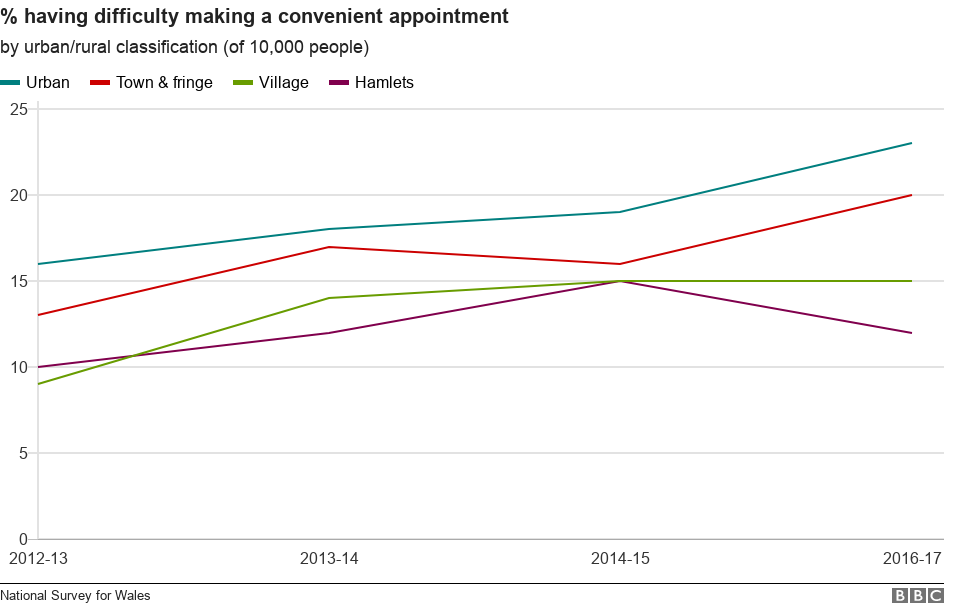
However, he added an ageing population was a bigger issue, saying: "We are living longer - seven years longer than 30 years ago.
"There has been a 10% rise in the population, mainly at the top end between the ages 74 and 82, when we need consultations far more."
He said surgeries now saw patients on average six times a year, which is 19 million appointments if you take the Welsh population as a whole.
The average list size is bigger in areas of greater population density with these impacted more.
Dr Bailey cited the example of a Prestatyn surgery that in 2015 had more than 18,000 patients and four partners.
Betsi Cadwaladr health board, which took over the practice in 2016, said it now had eight GPs and "a number of other therapies and senior nursing staff".
Last year, the chairman of a local medical committee warned services in north Wales were "reaching crisis point".
However, Dr Bailey described it as "swings and roundabouts", saying while it was easier to run a smaller practice, there were logistical difficulties visiting patients and getting locums to work there.
"Recruitment is the hidden problem in rural areas," he added.
"You have dedicated doctors, but it is getting someone to go there when they retire. It is workload and recruitment across the board."
He revealed consultations were rising while the pool of medical staff to recruit from is dropping.
People in Pontypridd talk about their experiences trying to access their GP.
Overall, survey figures showed 31% found it very easy to make an appointment, a further 31% found it fairly easy, 17% fairly difficult and 21% very difficult.
It added the number of patients seeing their family doctor in the past 12 months stayed relatively stable at 77%.
- Published25 January 2018
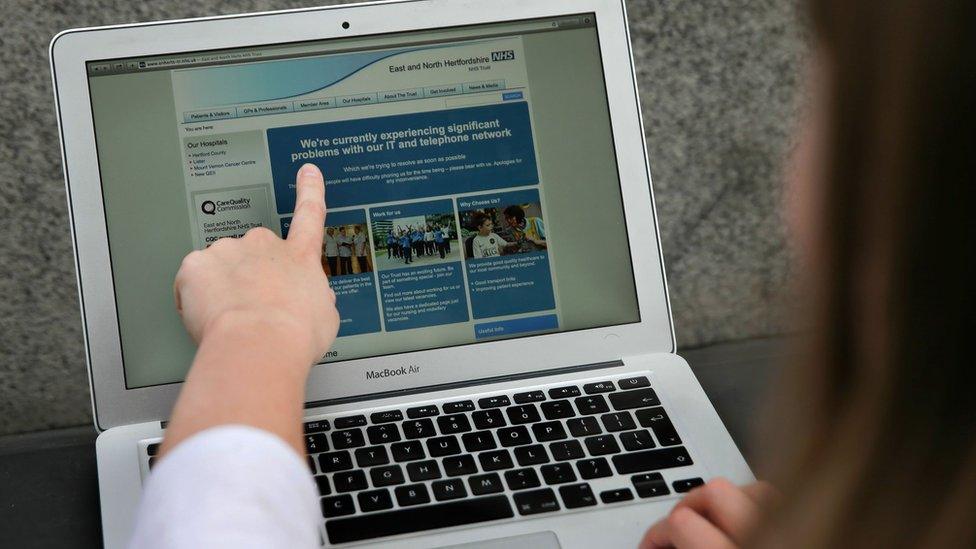
- Published8 November 2017
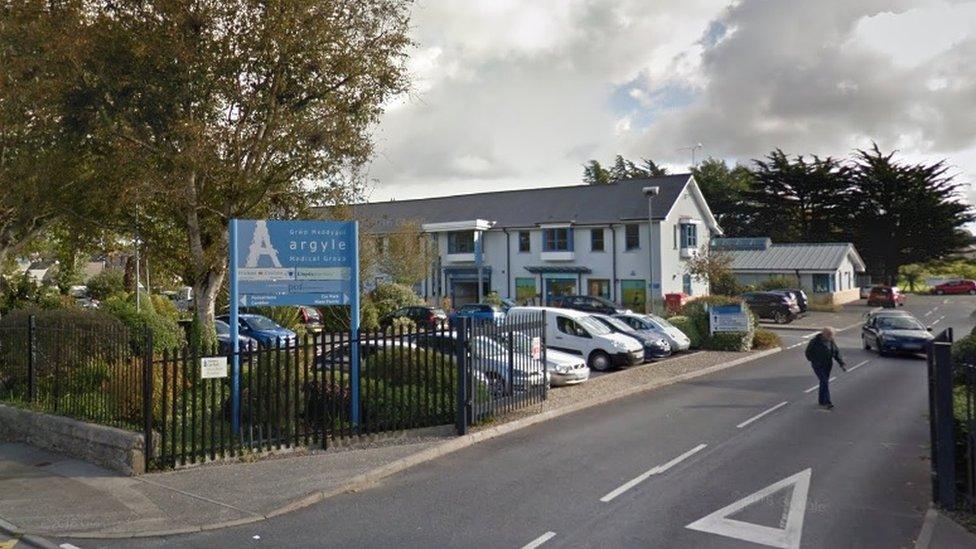
- Published13 October 2017
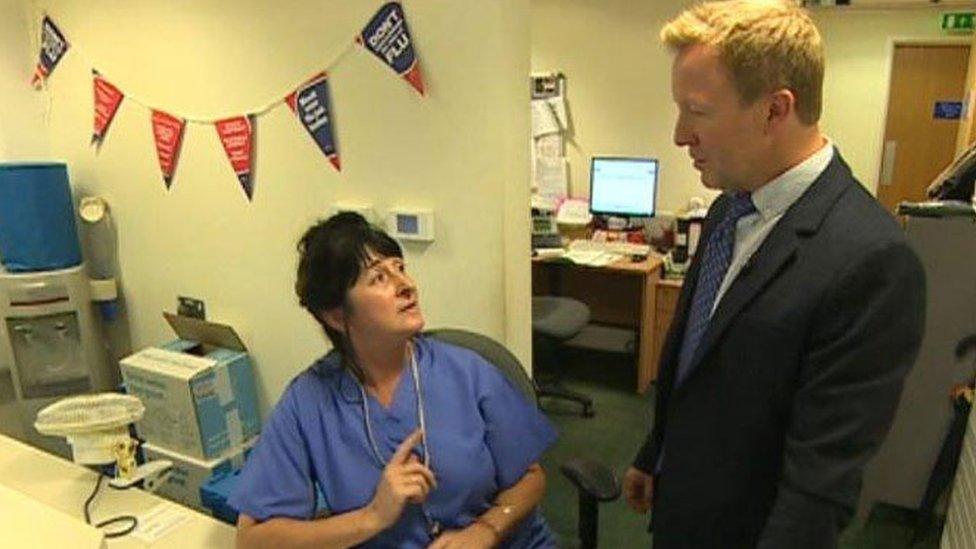
- Published28 September 2015
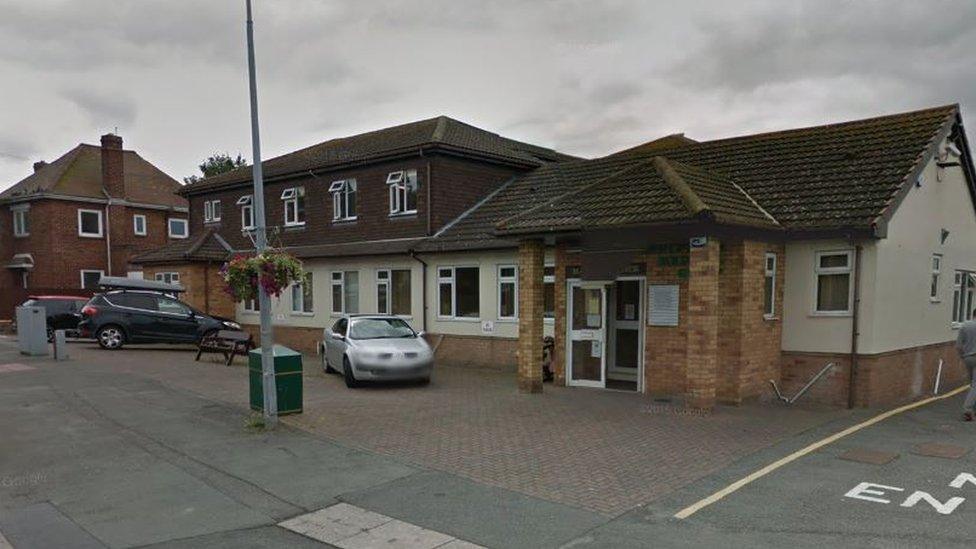
- Published10 August 2017
